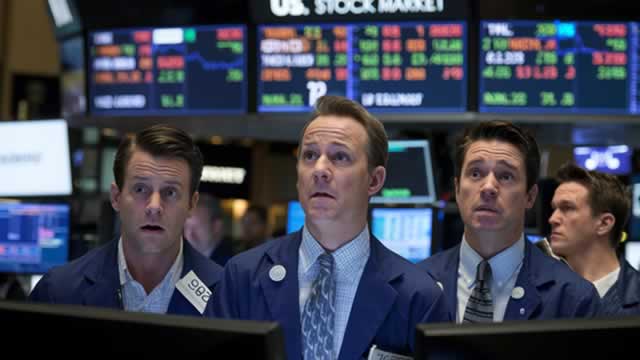The Market’s Emotional Rollercoaster: Fear and Greed Take the Wheel
The financial world is a complex and intriguing beast, constantly shifting and evolving in response to the tiniest of market movements. And sometimes, those movements are driven by something even more elusive than cold, hard data: emotions. Yes, you read that right – emotions. And on Tuesday, the CNN Money Fear and Greed index, a popular measure of market sentiment, showed a decline, with the overall sentiment leaning decidedly towards the fearful side.
What Does the Fear and Greed Index Tell Us?
The CNN Money Fear and Greed index is a useful tool for gauging the emotional state of the market. It takes into account a number of factors, including stock market volatility, the spread between the S&P 500 and the 10-year Treasury note, and the number of shares changing hands. When the index is in the “Fear” zone, as it was on Tuesday, it suggests that investors are more likely to be selling rather than buying, driven by fear and uncertainty.
So, What Does This Mean for Me?
If you’re an individual investor, the fearful market sentiment could mean a few things for you. First, it might be a good time to take a closer look at your portfolio and consider whether you’re comfortable with the level of risk you’re taking on. If the market continues to trend downwards, you might want to consider selling some of your more volatile holdings and moving into safer investments. On the other hand, if you’re feeling particularly brave, you might see the fear as an opportunity to buy low and hold on for the long term.
And What About the World at Large?
The impact of fearful market sentiment can extend far beyond individual investors. When investors are fearful, they’re less likely to put their money into risky ventures, which can slow down economic growth. This can lead to job losses, lower wages, and even recessions. And in a globalized economy, the impact of fearful market sentiment can be felt around the world.
But Is It All Doom and Gloom?
Of course not! While fearful market sentiment can be a cause for concern, it’s important to remember that markets are cyclical. After periods of fear, there are often periods of greed, when investors are optimistic and willing to take on more risk. And even during periods of fear, there are opportunities to be found. So, while it’s important to be aware of market sentiment and to take steps to protect your investments, it’s also important to keep a long-term perspective and to stay calm and focused.
- Market sentiment is an important factor in the financial world, and the CNN Money Fear and Greed index is a useful tool for gauging it.
- When the index is in the “Fear” zone, as it was on Tuesday, it suggests that investors are more likely to be selling than buying, driven by fear and uncertainty.
- Individual investors might want to consider taking a closer look at their portfolios and considering whether they’re comfortable with the level of risk they’re taking on.
- Fearful market sentiment can have far-reaching impacts, slowing down economic growth and leading to job losses and lower wages.
- It’s important to remember that markets are cyclical, and periods of fear are often followed by periods of greed.
So, there you have it – a fascinating look into the emotional world of the financial markets. While it’s important to be aware of market sentiment and to take steps to protect your investments, it’s also important to keep a long-term perspective and to stay calm and focused. After all, as the great Warren Buffett once said, “The most important thing to do if you find yourself in a hole is to stop digging.”
Conclusion
The CNN Money Fear and Greed index showed a decline on Tuesday, with the overall sentiment leaning towards fear. This means that investors are more likely to be selling than buying, driven by fear and uncertainty. For individual investors, this might be a good time to take a closer look at their portfolios and consider whether they’re comfortable with the level of risk they’re taking on. And while fearful market sentiment can have far-reaching impacts, it’s important to remember that markets are cyclical, and periods of fear are often followed by periods of greed. So, stay calm, stay focused, and keep a long-term perspective.





